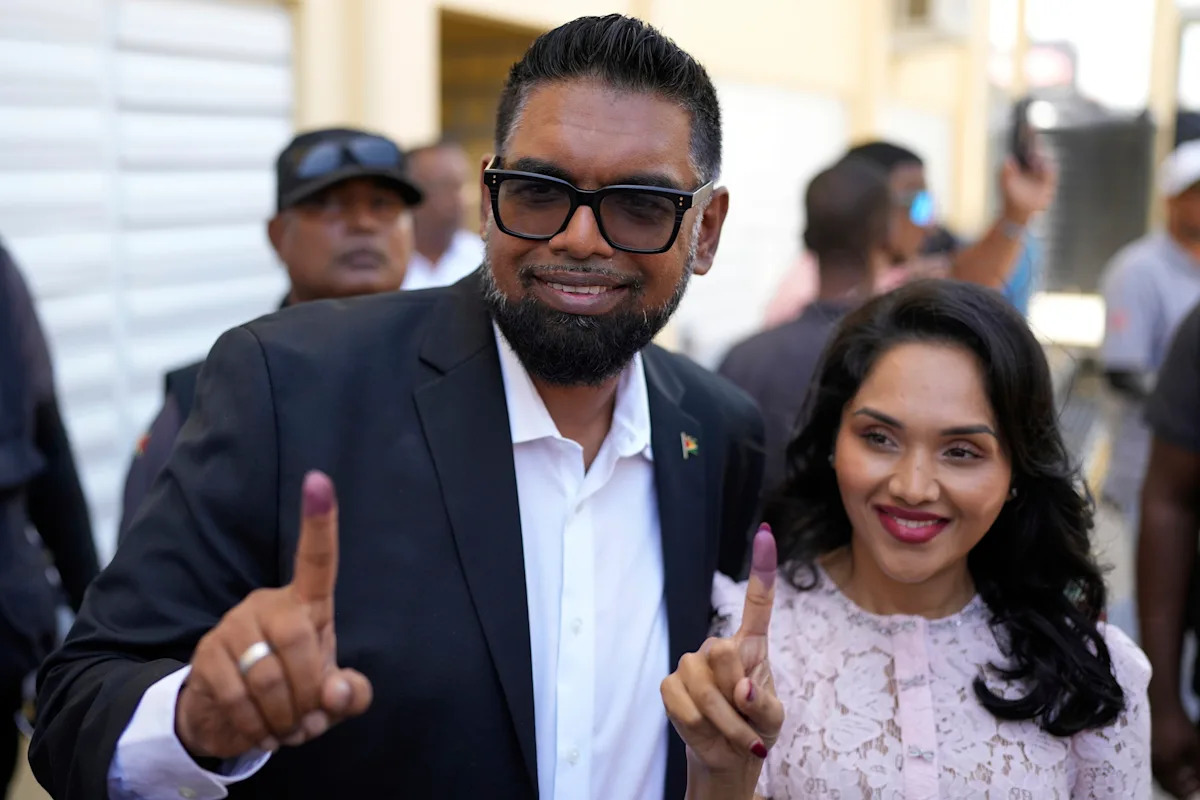PPP Secures Victory in Guyana Election as New Party Reshapes Politics
President Irfaan Ali secures second term as PPP wins Guyana election, while newcomer WIN party emerges as main opposition, reshaping the nation's political landscape amid oil wealth surge.

President Irfaan Ali celebrates election victory as PPP secures parliamentary majority in Guyana's general election
President Irfaan Ali and the People's Progressive Party (PPP) are set to retain power in Guyana's pivotal election that centered on managing the nation's expanding oil wealth. Preliminary results show the PPP securing approximately 35 of 65 parliamentary seats, marking a significant victory in this resource-rich South American nation.
Political Landscape Transformation
In a surprising turn of events, the newly formed We Invest in Nationhood (WIN) party has emerged as the main opposition, displacing the traditionally strong Afro-supported A Partnership for National Unity (APNU). WIN secured approximately 17 seats, while APNU dropped to around 11 seats, representing a dramatic shift in Guyana's political dynamics.
Electoral Participation and Demographics
The election saw a 52% turnout among Guyana's 757,000 eligible voters, a notable decrease from the 70% participation in 2020. This shift in voter engagement comes at a crucial time as Guyana navigates its transformation into a major oil producer.
WIN's Controversial Rise
WIN's leader, Azruddin Mohamed, has achieved remarkable political success despite facing U.S. Treasury Department sanctions. The 38-year-old businessman's party gained significant support among young voters and working-class communities, effectively challenging traditional political structures.
"Mohamed de-intellectualized politics. He addressed the needs of poor people with cash and other gifts and appealed to youth," explains Mark Kirton, retired international relations professor from the University of West Indies.
International Relations Challenge
U.S. Ambassador Nicole Theriot acknowledged the need for creative diplomatic approaches given Mohamed's sanctions status, stating that while direct transactions would be impossible, alternative channels for parliamentary cooperation would be explored.
Looking Forward
As Guyana prepares for President Ali's second term, the nation faces the complex task of managing its oil wealth while navigating new political dynamics and international relationships. The emergence of WIN as a major political force signals a significant shift in Guyana's political landscape.
Adrian Singh
Business reporter focused on economic freedom, foreign investment, and institutional transparency.
